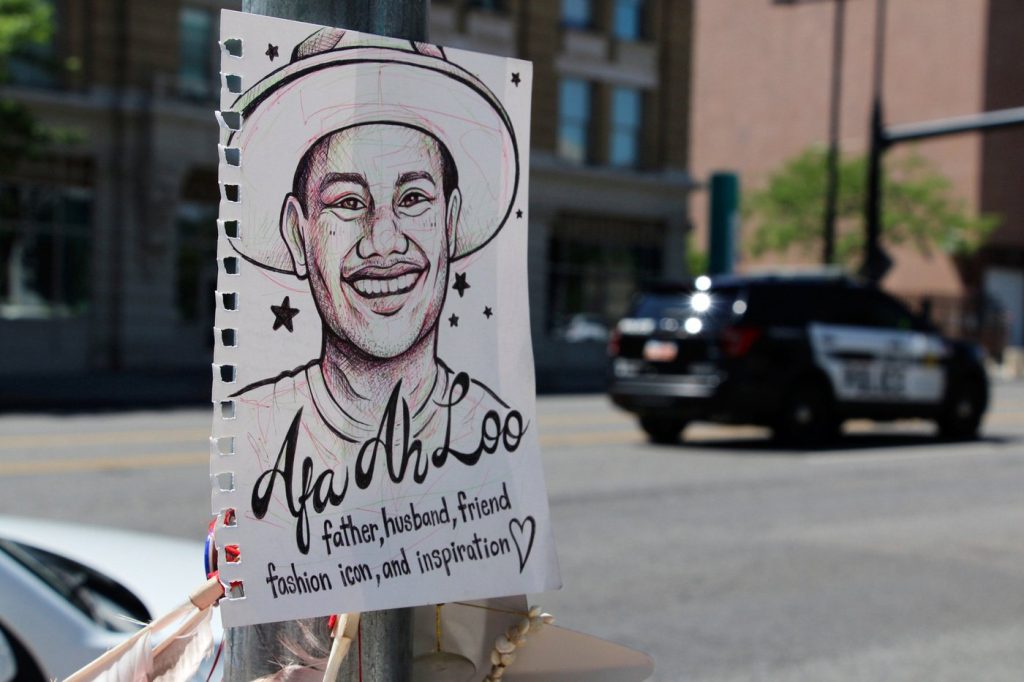SALT LAKE CITY — The widow of Arthur Folasa Ah Loo, a well-known fashion designer in Utah, is calling for accountability following her husband’s death during the "No Kings" protest in June. Four months have passed since the incident, yet no criminal charges have been filed in connection to the shooting that left Ah Loo fatally injured.
Ah Loo, affectionately known as Afa, passed away on June 15 following an altercation at the protest. During the event, a member of a volunteer peacekeeping team fired three shots at Arturo Gamboa, a man who allegedly pointed a rifle at demonstrators. One bullet hit Gamboa, yet he did not return fire. Another bullet tragically struck Ah Loo, leading to his death later in the hospital.
On that day, Ah Loo held a sign that read, “The world is watching,” a phrase now reiterated by his wife, Laura Ah Loo, who spoke at a press conference on Wednesday. “Afa always stood for those who needed justice the most, and now I stand for him, on his behalf,” her remarks emphasized the need for justice. Laura demands accountability and insists that “the world is watching” this situation unfold.
Although police arrested Gamboa following the shooting, he was never charged. Authorities indicated he contributed to the dangerous circumstances that culminated in Ah Loo's death. However, the safety volunteer who discharged his weapon, fatally hitting Ah Loo, has not been publicly identified or charged, as investigations are ongoing concerning the justification of his actions.
The recent "No Kings" demonstrations have reignited attention on this unresolved case, with thousands attending a rally outside the Utah State Capitol on October 18. Participants took the opportunity to call for justice for Ah Loo and to highlight messages of hope and healing for his family.
Laura Ah Loo's legal team announced intentions to file a wrongful death lawsuit against the unidentified volunteer who shot her husband. However, legal analysts predict the likelihood of criminal charges being filed is slim. Mitch Vilos, a Utah gun laws expert, noted that both self-defense rights and the right to carry firearms are strongly upheld in the state, presenting significant challenges for prosecutors aiming to establish criminal wrongdoing.
“It’s like friendly fire. It can happen,” Vilos commented, drawing parallels to similar incidents in military and police contexts. For prosecutors pursuing a criminal case, the burden of proof is severe, requiring a conviction beyond a reasonable doubt. In contrast, a civil lawsuit would demand merely a preponderance of evidence indicating negligence or wrongdoing.
Gamboa, who had been carrying an unloaded rifle during the protest, has maintained that he was legally in possession of the weapon. His attorney stated that Gamboa was merely a supporter at the rally, and his firearm was held in a non-threatening manner, pointed toward the ground, before he was shot.
The case continues to unfold, drawing public interest and sparking conversations about gun laws, self-defense, and the responsibilities of individuals participating in protests.











